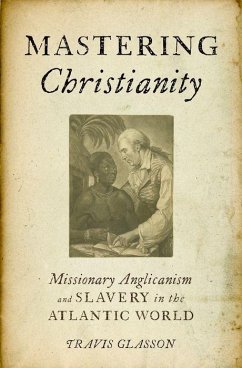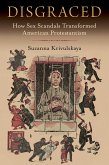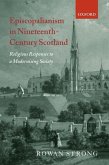Beginning in 1701, missionary-minded Anglicans launched one of the earliest and most sustained efforts to Christianize the enslaved people of Britain's colonies. This book offers a new assessment of the Society for the Propagation of the Gospel in Foreign Parts, which played a foundational role in colonial religious history and the history of British missionary activity. Based on a belief in the essential unity of humankind, the Society's missionaries advocated for the conversion and better treatment of enslaved people. Yet, only a minority of enslaved people embraced Anglicanism, while a majority rejected it. This book explores these missionary encounters in colonial America and around the Atlantic world. Many in the SPG believed that divine and human law sanctioned slavery, but Anglican attitudes were not static. While important early figures saw slavery as troubling, the Society increasingly comfortable with slavery, allied with slaveholders, and willing to embrace slavery as a missionary tool. The SPG owned hundreds of enslaved people on its Codrington plantation in Barbados, where it hoped to simultaneously make profits and save souls. In Africa, the SPG cooperated with English slave traders in establishing a mission at Cape Coast Castle, at the heart of the trans-Atlantic slave trade. Through its texts and practices, the SPG provided important intellectual, political, and moral support for slaveholding around the British empire. The rise of antislavery sentiment challenged the principles that had long underpinned missionary Anglicanism's program. This work closes with a reexamination of the SPG's place in debates about abolishing the slave trade and emancipating enslaved people. While some accounts have stressed the reformism and anti-slave trade sentiments of SPG supporters, here a reevaluation reveals the Society's commitment to slavery, how the Society's history was used to defend slaveholding, and how antislavery activists viewed the Society as a significant institutional opponent.
This book examines how missionaries of the Anglican Church in North America, the Caribbean, and Africa initially spread a religiously-grounded understanding of human diversity that stressed the essential unity of all people but over time developed the idea that slavery and Christianity were entirely compatible and could be mutually beneficial, leading the Church to become an institutional opponent of the abolition movement.
This book examines how missionaries of the Anglican Church in North America, the Caribbean, and Africa initially spread a religiously-grounded understanding of human diversity that stressed the essential unity of all people but over time developed the idea that slavery and Christianity were entirely compatible and could be mutually beneficial, leading the Church to become an institutional opponent of the abolition movement.









